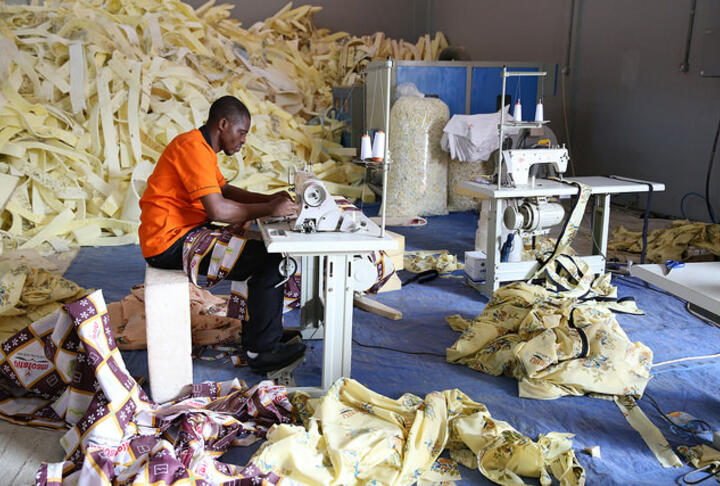Over the past decade Africa has experienced a 5% growth across the continent. This surprising and spectacular growth attracts investors from around the world. They are both forced to change their perception about what contains profound upheaval, and seduced by what is now considered as the emerging new frontier. Among the ten countries in the world where economic growth was the fastest between 2000 and 2010, five were located in sub-Saharan Africa: Equatorial Guinea (12.3% per year), Angola (9.3% per year), Chad (8.8% per year), Nigeria (7.4% per year) and Ethiopia (6.9% per year).
But this growth remains fragile, uneven and carries huge challenges: how to ensure that it benefits to the greatest number of people and allow millions to get out of the poverty trap?
In 2050, Africa will not only account for 4% of the global economy, it will also make up 23% of the world's population. This new world pole will be facing major issues such as the employment of a young and dynamic population that will be increasingly numerous in the labour markets. In this context, African small and medium sized enterprises (SMEs) are best positioned to create jobs and local added value, as well as develop the local economic fabric. They stand for essential drivers for social and political stability by spreading the wealth created and structuring local economies.
Nevertheless, SMEs appear as missing links in most African economies. They desperately need to find ways to meet their needs for growth despite a latent lack of access to finance. Too small and too costly to manage for large banking institutions, they are also too large to meet the investment criteria of microfinance institutions. They often are in a deadlock and do not fully benefit from the growth of the continent.
In this context, what solution one could bring to these key actors for responsible and sustainable growth in Africa in order to enable them start their business or scale up?
The solution lies in the emergence of new financing capacities that will offer entrepreneurs the opportunity to strengthen their capital stock under conditions compatible with certain constraints in terms of management fees, transaction costs, etc. It consists of developing a new industry of capital investment, 100% African, which can rely on a network of local investment funds, promoted by African investors and managed by locally recruited teams. This new device will revolutionize the access to finance for small African entrepreneurs through new sustainable funding solution.
But this capital will not be sufficient for African entrepreneurs to reach their growth potential and maximize their economic, social and environmental impacts. It should be complemented by strategic guidance for establishing solid fundamentals and ensuring sustainable development in due respect of all stakeholders. Finally, technical assistance missions will be essential to build and strengthen the financing capacities, through the transfer of know-hows, methodologies and the development of local skills.
The creation of this network of African investment funds will draw lessons from successes and failures of microfinance and will bring to private equity the same kind of revolution as the one microfinance has brought to the debt. It will require a real education for not only existing African finance players: banks, development agencies, private institutions, so that everyone contributes to the success of this new funding; but also with entrepreneurs as private equity is sometimes looked at with distrust and its benefits are not fully appreciated today!









